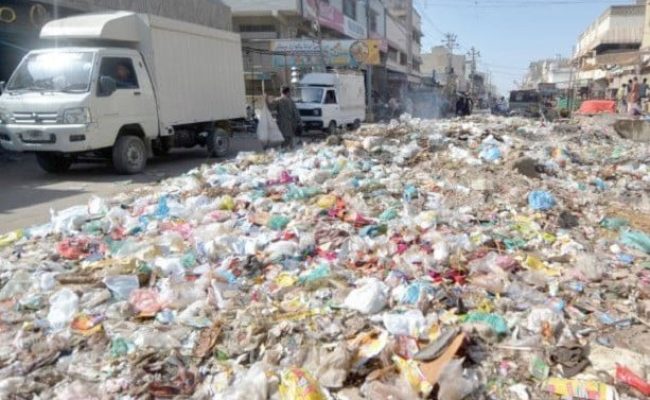By Abid Chaudhry
TWA
______
Islamabad:As Pakistan intensifies its battle against climate change, experts are raising alarms about the growing menace of plastic pollution, which threatens to derail the country’s environmental initiatives.
Despite progress in environmental policies and a surge in activism, plastic waste continues to undermine Pakistan’s sustainability goals. Renowned environmentalist Dr. Ejaz Ahmed, former Director at WWF-Pakistan, has called for immediate action, highlighting how plastic waste clogs waterways, disrupts ecosystems, and overshadows the nation’s aspirations for a greener future.
Dr. Ahmed also discussed innovative solutions, such as recycling programs and turning plastic waste into valuable resources. He pointed to the potential of using plastic in co-processing fuel for cement production and creating construction materials, demonstrating that science and technology could play a crucial role in combating the plastic crisis.
The health implications of plastic pollution are also severe. Dr. Shazia Aslam, a leading dermatologist from Lahore, warned of the toxic chemicals released when plastic is heated, contributing to a rise in lung diseases, cancers, and skin conditions. Despite numerous awareness campaigns and regulatory measures, plastic continues to be deeply ingrained in daily life, from household items to food packaging.
The global scale of plastic pollution is staggering, with over 300 million tons produced annually, half of which are single-use plastics. This poses a significant challenge to Pakistan, which has the highest percentage of mismanaged plastic in South Asia.
Some progress has been made, such as the banning of plastic bags in cities like Islamabad, Lahore, and Hunza through Statutory Regulatory Orders (SROs). However, the lack of comprehensive policy frameworks at both federal and provincial levels remains a major hurdle.
Shafee Muhammad Marwat, a director at Islamabad’s civic body leading anti-pollution campaigns, emphasized the threat plastic poses to both human life and infrastructure. Despite efforts to curb its use, plastic continues to be pervasive, extending even to food and waste disposal.
As countries like Bangladesh, France, and Rwanda take decisive actions against plastic pollution, Pakistan finds itself at a critical crossroads. The path forward requires a unified, nationwide approach to address the plastic crisis and secure a sustainable future for its people and environment.


